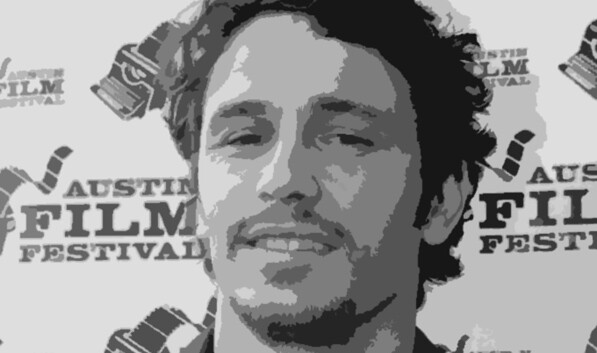Being Read by James Franco

The filmmaker James Franco has been writing about a book of mine that Franco's students at CalArts in Valencia will spend this semester and the next turning into an assemblage of short films. This is supposed to add up to something, rather like the book was supposed to.
I'm not against interpretation (having been badly trained -- my own fault, really -- in critical theory). It's just that it's weird when interpretation happens to you (and even stranger when it joins, if only peripherally, celebrity culture).
There's an unpleasant history of writers (or a writer's heirs) manipulating interpreters, attempting to control the afterlife of the writer as if that were possible or desirable. My book -- written nearly 20 years ago -- is nearly as foreign to me as it is to the 20-some-year-olds who were hardly in elementary school then. The book's author is someone I used to know quite well, but we've drifted apart over the years. He was (as I've said before) more angry, more outraged than I am now.
If I'm forced to interpret him, then he's fair game for anyone else, including James Franco and his class of film students.
It may be saying too much that "Holy Land: A Suburban Memoir" is an argument, specifically about the meaning of "place" in our lives together. But I thought that's what I was making -- the argument that people and places have a reciprocal shaping power, that things-in-themselves, as I've said before, receive our touch and return one of their own mingled with ours.
Franco, writing about "Holy Land" in his blog at the Huffington Post, calls the book's effects elusive -- perhaps not the best form of an argument. He notes that the book is fragmentary -- and it is. Hard to grasp and disconnected is not the kind of argument that would win over a jury.
You would think that film, which is itself impressionistic and fragmentary, would be the right medium through which an elusive narrative could be interpreted, that film, which is crowded with the presence of everyday things, is in sympathy with the idea that ordinariness matters. I have my doubts.
Franco has said that one of his intentions as a filmmaker is to find ways of translating poetry into film. Translating may show Franco (as it did me) the truth of Wallace Fowlie's assertion that poems endure in their own words the dangers of overstatement and misstatement until, in their final form after the poet's death, they attain a fixed and permanent life, unalterable, beyond disaster. At which point the poem becomes untranslatable (even as the poet's words enter our common speech).
"Holy Land" is half into this afterlife already, into which a collection of student films will propel it a little further, unsuspected, I think, by James Franco.
D. J. Waldie, author and historian, writes about Los Angeles twice each week at KCET's SoCal Focus blog.